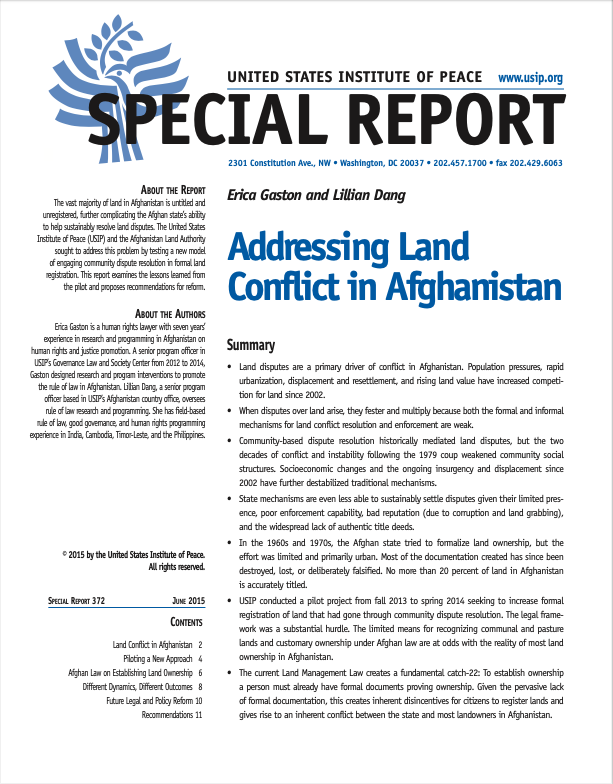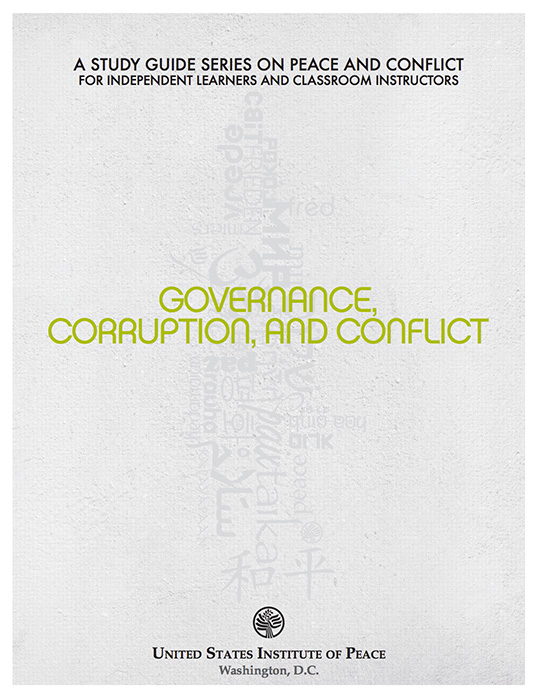Location
The United States Institute of Peace is an independent national institute, founded by Congress and dedicated to the proposition that a world without violent conflict is possible, practical, and essential for U.S. and global security. USIP pursues this vision on the ground in conflict zones, working with local partners to prevent conflicts from turning to bloodshed and to end it when they do. The Institute provides training, analysis, and other resources to people, organizations, and governments working to build peace.
Members:
Resources
Displaying 1 - 4 of 4Addressing Land Conflict in Afghanistan
The vast majority of land in Afghanistan is untitled and unregistered, further complicating the Afghan state’s ability to help sustainably resolve land disputes. The United States Institute of Peace (USIP) and the Afghanistan Land Authority sought to address this problem by testing a new model of engaging community dispute resolution in formal land registration. This report examines the lessons learned from the pilot and proposes recommendations for reform.
Lessons from Afghanistan’s History for the Current Transition and Beyond
Despite interesting patterns from the past and at least superficially striking parallels with the present, policies on Afghanistan have not been adequately informed by an understanding of the country’s history. Nor has the extensive academic literature on Afghan history been translated into policy; on the contrary, much that has been attempted in Afghanistan since late 2001 has been remarkably ahistorical. This report identifies broad historical patterns and distills relevant lessons that may be applicable to policies during the 2011 to 2014 transition and beyond.
Governance, Corruption, and Conflict
The international system has witnessed dramatic changes in the recent past. Questions relating to how and when ordinary citizens can stand against oppression, injustice, and abuse without resorting to violence challenge all of us to rethink our understanding of international peace and conflict. As academicians, educators, practitioners, private citizens, and students, what is our role in this increasingly complex global picture? What can we do to nurture and preserve international security and world peace?
Managing natural resource wealth
This report analyses the particular challenges of stabilisation and reconstruction missions in countries rich in hydrocarbons and minerals and provides lessons learned from the recent experience of such countries as Iraq, Sudan, Angola, Liberia, and Afghanistan. It offers recommendations for the U.S.





